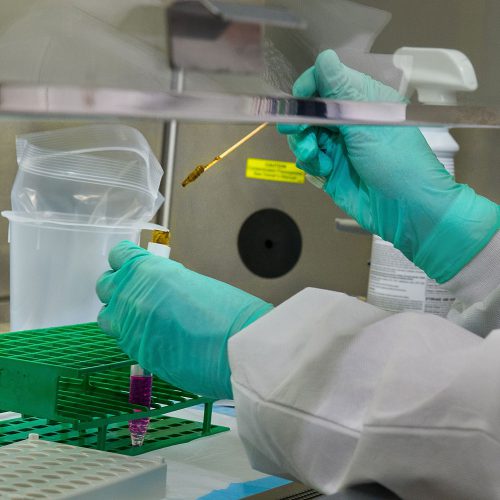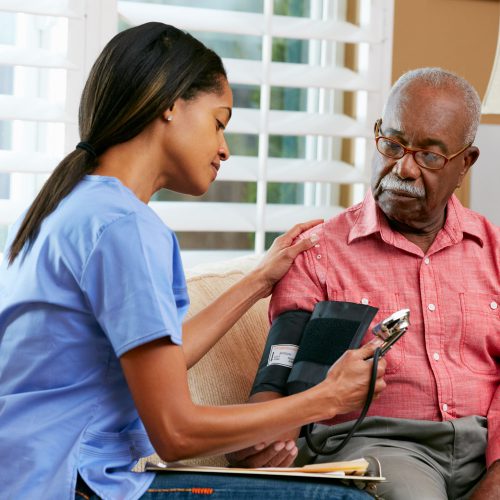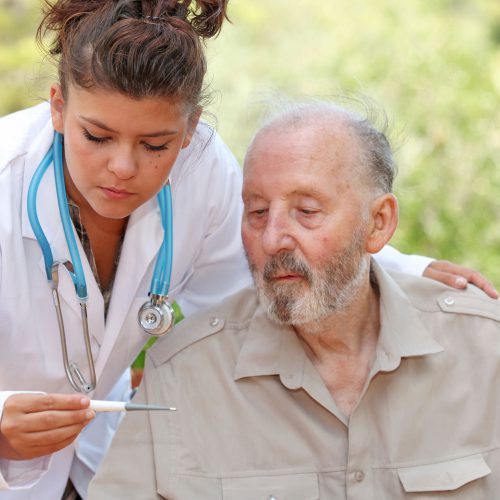
Phlebotomy Training
The Associated Technical College Phlebotomy Training Program is for students seeking a certification as a “Certified Phlebotomy Technician I,” which is designed and coordinated to both teach them the technical knowledge, as well as various procedural elements of basic and advanced phlebotomy. This includes both the collection of blood specimens and venipuncture; these are part of the necessary requirements to become a Phlebotomy Technician. The Phlebotomy Training Program at ATC includes a combination of classroom theory and hands-on instruction using our own in-house Laboratory environment, followed by an externship providing practical experience in a Laboratory Clinical Setting. Graduates who meet all graduation requirements, will be eligible to take the National Health career Association exam. They will also receive a license awarded by the California Department Public Health once submission of required documentation and successfully pass the NHA exam and meet all the requirements.
Our program will instruct our students on many topics including: An Introduction to Phlebotomy & Infection Control, Legal Issues in the Healthcare arena, an Introduction to Human Anatomy & Physiology, Medical Terminology usage, typical Phlebotomy Equipment and Supplies, various Phlebotomy Clinical Skills/Procedures, and lastly, the Fundamental Essentials of Phlebotomy. This Phlebotomy program is developed for students who want to not only become employed or enhance their careers, but also those interested in entering a new field or beginning a career in the medical field to become a Phlebotomy Technician. This is a fully developed, comprehensive, 60- hour program of Didactic Instruction (basic and advanced Phlebotomy) at ATC, along with 40-hours minimum in an external Laboratory/Clinical Setting.
The structure for our Phlebotomy Training Program is about 4 weeks, established for 4 hours per day, Monday to Friday, for a total of 60 hours (Didactic Instruction). In addition, the Clinical Setting (Laboratory Externship) hours are a minimum of 40 hours, and the number of days involved may vary, based on the availability and requirements of the Lab. This program includes both a Basic and Advanced Phlebotomy Curriculum. Module descriptions:
Course Subjects
Basic Phlebotomy (Week 1)
Course Topics: Infection control, universal precautions, and safety; basic anatomy and physiology of body systems with emphasis on the Circulatory System, appropriate medical terminology; proper identification of patient and specimens and the importance of accuracy in overall care; proper selection and preparation of skin puncture site(s).
Basic and Advanced Phlebotomy (Week 2)
Course Topics: Selection of antiseptic; blood collection equipment, types of tubes and additives, proper order of draw when additives are required, and special precautions; post puncture care; appropriate disposal of sharps, needles and waste.
Advanced Phlebotomy (Week 3)
Course Topics: Advanced infectious disease control and biohazards; anti-coagulation theory; knowledge of preanalytical sources of error in specimen collection, transport, processing, and storage; anatomical site selection and patient preparation; risk factors and appropriate responses to complications that may arise from phlebotomy; recognition of problems in test requisitions, specimen transport, processing, and corrective actions to take; application of basic concepts of communication, interpersonal relations, stress management, professional behavior, ethics, and legal implications of phlebotomy; quality assurance in phlebotomy necessary to provide accurate and reliable laboratory test results; legal issues related to blood collection.
Clinical/Externship
Phlebotomy Professional Practice Experience in a Clinical Setting
Length (Hours): 40 work site learning hours
Description: Students will be placed in a clinical setting in order to complete 40 hours of clinical training. Students will complete a minimum of 10 skin punctures and 50 venipunctures that fulfill all sampling requirements as set forth by the CA Department of Health as well as observe arterial punctures. In order to participate in clinical setting training, students must have successfully completed Basic didactic instruction and Advanced didactic instruction with a grade of ‘C’ or higher.
Students must complete 40 hours of verified, supervised field experience and meet the required competencies through actual on-the-job performance in order to receive a certificate of completion. This is a pass/fail class. Students may repeat through an appeals process.
Competencies/ Outcomes
Upon successful completion of the course the student will be able to:
- Select blood collection equipment appropriate to test requisition
- Prepare the patient for proper testing procedures using proper infection control guidelines
- Demonstrate venipunctures and skin punctures for testing purposes from the following:
- Well patient
- Patient with acute illness
- Patient with chronic illness
- Patients of all ages including pediatric and geriatric. Patients of varying cultural backgrounds
- Patients with varying diseases and disorders such as obesity
- Demonstrate post-puncture care procedures
- Apply appropriate blood processing techniques, including centrifugation
- Demonstrate proper disposal of needles, sharps, and medical waste
- Explain arterial blood draws
These competencies are determined and required by the CA Department of Health. https://www.cdph.ca.gov


